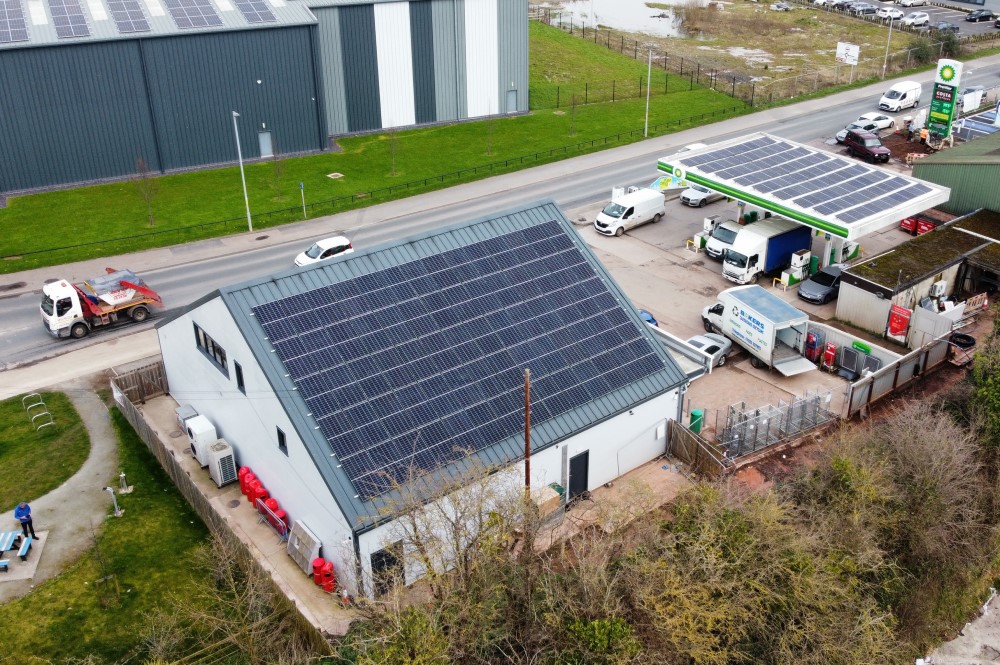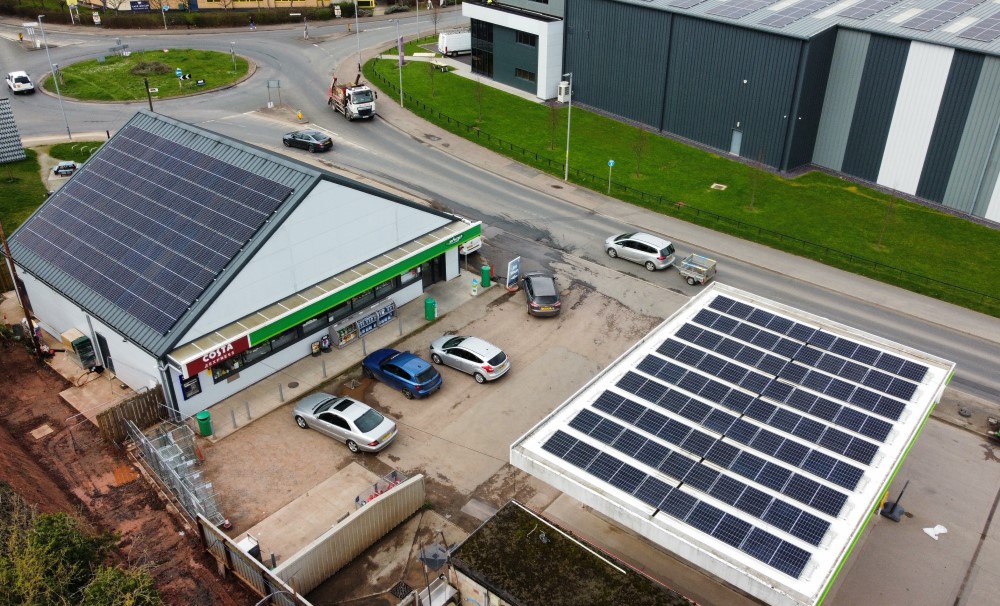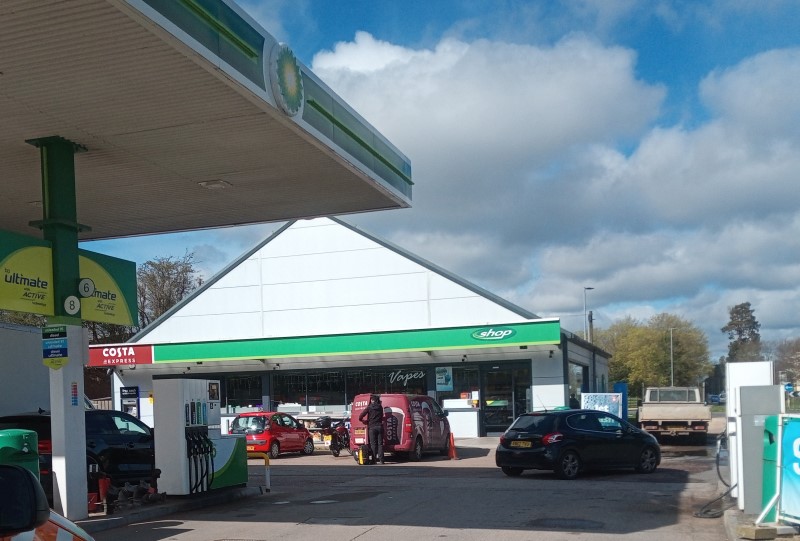Rotherwas Service Station, Hereford Enterprise Zone
| System Size | 40 kWp |
| Generation | 35,370 kWh |
| Solar Panels | 108 x 375W REC Twin Peak 4 |
| Inverter | 1 x SolarEdge 33.3kW 3 phase inverter |
| Mounting | Schletter |
The Rotherwas Service Station selling BP petrol and diesel does a roaring trade providing “fuel” for workers and their vehicles during the working day. The owner, Mohammed Ahmed, decided to expand in 2017 with a new larger building providing more than just a convenience store. There’s hot, freshly baked food for the hungry workers of Skylon Park, Hereford Enterprise Zone with an emphasis on supporting local food suppliers.
Mohammed wanted to offset the higher running costs by installing solar panels and generate their own electricity to power the new building, its fridges and ovens.
To capture as much of the energy from the sun as possible the main roof was orientated south and built at the optimal angle of 30°. “I got a couple of local companies to quote for the solar installation and Solarkinetics really stood out as the best option. Gordon Yule, who came out to do the site survey and design the system, was flexible and very customer focused, looking at how best to meet my requirements,” said Mohammed.
COVID lockdowns delayed Mohammed’s plans for the solar system but when the price of electricity started to skyrocket in 2022, the move to renewables took on a new impetus.
In total 108 solar panels were installed, covering the south facing main roof plus the forecourt canopy above the fuel pumps. “The installation team were professional, the lads were also quick, everything was installed in one week as planned,” said Mohammed.
“We plan installations so the level of disruption to the business is kept to a minimum,” said Gordon. “In this case, we were able to install solar panels on the forecourt canopy while still allowing people to carry on using the fuel pumps.”
Each panel is 375W so the total installation is 40kWp, forecast to produce 35,370kWh per year. “The system is due to break even in 3.5 years and from the performance over the past year, we’re certainly on course to achieve this,” commented Mohammed. “Electricity usage in the summer months was £5,000 per month, now it’s £2,500 per month.”



